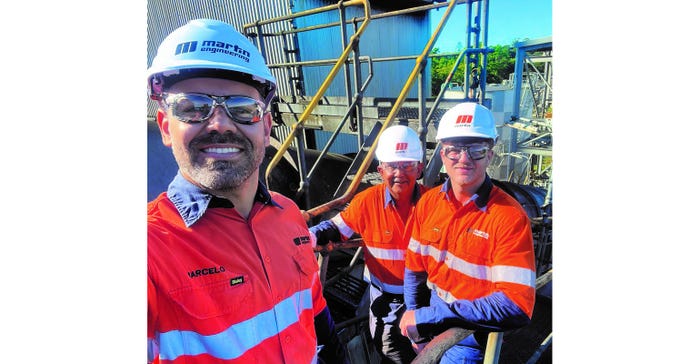AI and Bulk SolidsAI and Bulk Solids
AI may have many applications in all areas of bulk solids handling and we should be open to the potential benefits that can be derived from this approach.
February 21, 2025

There is no doubt that we are living in a rapidly changing world where the established paradigms we all thought we knew are being significantly modified and, in some cases, completely overturned. This is true in terms of our conventional world order in international politics, trade, and culture. Things we thought we knew and understood are often no longer applicable.
Just as significantly, our approach to science, technology, and engineering is also going through a very significant change, particularly with the rapid development of robotics and artificial intelligence (AI).
Back in the 1990s, there was a rapid development in robotics and AI. We all probably remember the first time a computer beat a human at Chess. This period also saw a massive growth in the development of various types of robots undertaking many tasks previously undertaken by people. However, another aspect in the development of AI was taking place that challenged classical AI thinking. The classical approach was to gather information that would inform the development of a model that was then codified in a plan that was then executed. However, new thinking suggested this was unnecessary. What was really required was to sense the world, make some sense of it, to then make decisions but without the full development of complex models. This has parallels to the simple principles of intelligence that suggest that good decisions can be made with suitable information without the full development of models.
Fast forward to 2025, we are now all using AI through our smart phones, ChatGPT, and other technologies that simplify reaching solutions to a range of problems. So, what does all this have to do with bulk solids and mechanical conveying. Well, while bulk solids are often seen as an annoying but essential step in various manufacturing processes, the mechanics of bulk solids and particulates are extremely complex, and it is often these complexities that cause so many operational problems.
At present, I am working on a project with the International Fine Particle Research Association (IFPRI) on the reliable discharge of materials from flexible containers, in particular bulk bags. This is a particularly complex problem. Discharge from hoppers and bins with rigid walls is difficult enough, however, the consolidation loads within the material vary enormously when the rigid wall constraint is removed. The classical approach would involve going back to first principles in order to develop a fundamental mathematical model, codify the output, and execute the model. This is extremely complex when considering 3-dimensional consolidation and the dynamics of discharge under an extensive range of loading conditions and material properties. Maybe, just maybe, AI has some lessons for us in sensing the actual conditions that may allow us to find appropriate solutions. However, the caution around this approach is that it may help to provide interim solutions but, of course, it will not necessarily deepen our understanding of a deeply complex problem.
It is clear that AI may well have many applications in all areas of bulk solids handling and we clearly should be open to the potential benefits that can be derived from this approach. However, we also need to be aware of the potential pitfalls, too. AI may well help us to alleviate operational problems in the short-term, but we do need to be mindful of the fact that it often will not lead to a more thorough understanding of the fundamentals that will be necessary for the development of the science.
Of course, this is also true for the use of AI more broadly. It is clearly an important tool with many benefits and great future potential. But let’s not confuse solutions with understanding.
Emeritus Professor Mark Jones, PhD holds the Chair in Bulk Solids Handling at the University of Newcastle, Australia. He is also the Director of the Centre for Bulk Solids and Particulate Technologies and Senior Consultant to TUNRA Bulk Solids Handling Research Associates. He has worked in the field for more than 35 years, researching and working with industry worldwide. He is currently Chair of the Australian Society for Bulk Solids Handling, Engineers Australia.
About the Author
You May Also Like




